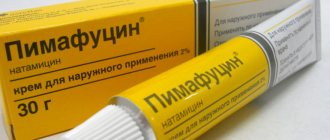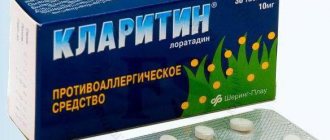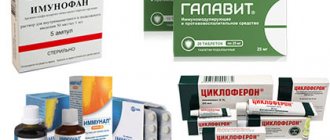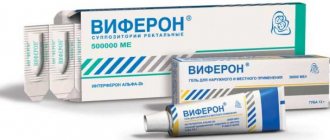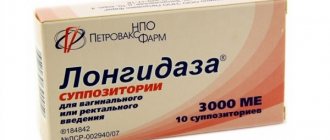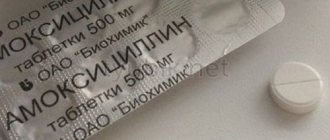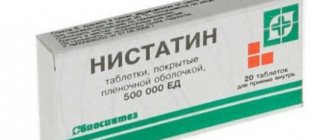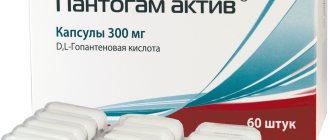Inflammatory diseases of the genital tract are common companions of women. The provocateur is a nonspecific opportunistic flora. Normally, it is present in small quantities in the vagina, but a decrease in the body's defenses allows it to multiply and cause inflammation. The problem cannot be left without treatment. Inflammation can progress and spread to the overlying parts of the reproductive system. In this situation, gynecologists often prescribe multi-component suppositories. The instructions for using Polygynax suppositories emphasize that the drug belongs specifically to this category.
Pathological discharge from the genital tract and itching are the first symptoms that speak in favor of an inflammatory reaction. But an accurate diagnosis is impossible without examination. For diagnosis at the initial stage, it is enough to visit a gynecologist so that he takes a smear on the vaginal microflora.
When is it time to get treatment?
The vagina is an environment with a certain balance of many microorganisms. Any changes in the flora are accompanied by the appearance of a certain type of discharge. Normally, the amount of vaginal discharge is insignificant. A healthy woman practically does not notice them. Discharge may increase:
- during the period of ovulation;
- before menstruation;
- in pregnant women;
- during sexual arousal.
During reproductive age, in 70% of cases, the appearance of noticeable discharge - leucorrhoea - is associated with inflammation. At the same time, the composition of the vaginal microflora changes.
Most people have opportunistic microorganisms. But it is not their quantity that matters, but the ratio with beneficial microorganisms. In healthy women, single cells of opportunistic flora can be detected in smears. The table shows normal and abnormal results of a vaginal smear.
Table - State of vaginal biocenosis
| Smear readings | Norm | Pathology |
| Flora | — Lactobacilli (Dederlein rods); — up to 10 microbial cells of other morphotypes; - no trichomonas, gonococci, candida and key cells | — Reduced number of lactobacilli; — cocci, gardnerella, and candida predominate (depending on the pathology); — specific microorganisms appear: gonococci, trichomonas |
| White blood cell count | — Up to 10 in a smear from the vagina and urethra; - up to 30 in a smear from the cervical canal | — More than 10 cells; - with gardnerellosis, the indicator may be within normal limits |
| Epithelium | Up to 15 cells per field of view | More than 15 cells |
| Slime | A small amount of | Significant amount |
Very often, vaginitis or cervicitis is caused not by one microorganism, but by a microbial association. This is reflected in the choice of treatment regimen. In this case, you need to take an integrated approach, using drugs with multidirectional effects.
Contraindications and precautions
Contraindications for treating gynecological diseases with suppositories include intolerance to any drug.
Such treatment with vaginal suppositories is also prohibited if a woman has:
- cysts;
- erosive formations;
- cracks in the vagina.
- Rectal suppositories are contraindicated for:
- hemorrhoids;
- presence of cracks in the anus;
- inflammation of the intestines;
- bleeding in the intestines.
When taking suppositories, the following precautions should be taken:
- Before use, read the instructions for use. If there are contraindications, it is better to refuse use. Often, drugs cannot be used for diseases of the kidneys, liver, hemorrhoids, during lactation and breastfeeding.
- Maintain hygiene when inserting suppositories.
- Use suppositories only on the advice of a doctor.
- Is pre-douching necessary?
- Does the introduction of suppositories depend on the menstrual cycle?
- Frequency and duration of use of suppositories
- Is it worth stopping sexual intercourse?
Active ingredients of the drug
Polygynax suppositories contain three active ingredients that can cope with several types of infection at the same time:
- neomycin sulfate;
- polymyxin B sulfate;
- nystatin.
Each of the substances has its own spectrum of activity, but acting simultaneously they are able to prevent the proliferation of all groups of microorganisms that cause colpitis or vaginitis.
Neomycin sulfate
This is an antibiotic from the group of aminoglycosides and has a wide spectrum of action. In small concentrations it has a bacteriostatic effect. At the same time, it penetrates the microbial cell, binds to specific receptors and stops protein synthesis. Bacteria lose the ability to reproduce.
In high concentrations it has a bactericidal effect. Neomycin causes direct damage to the cell membrane of the microbe, which leads to its death. Activity is manifested against the following microorganisms:
- streptococci;
- staphylococci;
- coli;
- salmonella;
- shigella;
- corynebacter;
- Proteus.
Neomycin in Polygynax has only a local effect. At the same time, its suction is minimal. But in general, the drug is able to penetrate the placenta. Neomycin is dangerous for the fetus because, like other aminoglycosides, it has oto- and nephrotoxic effects. Therefore, the use of drugs containing neomycin during pregnancy is unacceptable.
Polymyxin B sulfate
Polypeptide antibiotic with bactericidal action. It attaches to the bacterial membrane, increases its permeability, which leads to cell disintegration. Resistance to the drug develops very slowly. Effective against the following microorganisms:
- coli;
- salmonella;
- shigella;
- Klebsiella;
- bordetella;
- enterobacter;
- pseudomonas;
- Haemophilus influenzae.
It penetrates tissue barriers poorly, but it is prescribed to pregnant women only for health reasons.
Nystatin
An antifungal agent from the group of polyene antibiotics. The peculiarity of the mechanism of action is based on the ability to integrate into the membrane of the fungus. In this case, a channel is formed through which water and electrolyte ions freely penetrate into the cell. Gradually this leads to the decay of the fungal cell.
Fungi of the genus Candida are sensitive to nystatin. Has no effect on the following microorganisms:
- bacteria, including gardnerella;
- viruses;
- protozoa (Trichomonas).
Nystatin is practically not absorbed and has only a local effect.
special instructions
Before starting treatment with Polygynax suppositories for inflammation, you should consult your doctor and pay attention to the following important points:
- For maximum effectiveness of treatment, it is advisable to conduct an analysis of the vaginal mucosa (smear) to find out whether the infectious agent is sensitive to the active components of the drug.
- The onset of menstruation does not necessarily require interruption of the course of treatment.
- Excessive duration of the treatment period increases the risk of reinfection and may cause the development of forms of pathogens that are resistant to the active substances of the drug.
- When using Polygynax for inflammation, you should not use latex contraceptives (condoms, caps).
- The drug does not reduce the ability to concentrate and does not require changes to your usual lifestyle.
In what cases is it necessary and when is it contraindicated?
Indications for the use of Polygynax suppositories include treatment and prevention. For therapeutic purposes it is prescribed for the following conditions:
- nonspecific vaginitis – inflammation caused by opportunistic flora;
- fungal vaginitis - when thrush is complemented by microbial flora;
- mixed vaginitis - a variety of flora was found in the smear;
- vulvovagiitis - inflammation spread to the vestibule and vaginal cavity;
- cervicovaginitis is an inflammatory reaction in the cervical canal and vagina.
For chlamydia, the use of Polygynax suppositories can only be part of a complex treatment.
Treatment with Polygynax is not prescribed for cystitis. This is an inflammation of the bladder, so vaginal capsules will not bring a therapeutic effect. Indications for use do not include anaerobic flora, such as gardnerella. This microbe is not sensitive to the action of the drug. In the treatment of adnexitis it can be used as an adjuvant: inflammation of the appendages is often accompanied by a similar reaction in the vagina.
Prevention of infections
For the purpose of prevention, Polygynax is prescribed in cases where it is necessary to prevent the proliferation of opportunistic flora. Most often, these conditions are associated with various manipulations of the genitals.
- Preparing for surgery. If a woman is preparing for planned genital surgery, then she can start using suppositories a week in advance. This is especially true for a smear with a second or third degree of purity, when there is minor inflammation, but after surgery it can become a source of infection.
- Preparing for childbirth. A newborn comes from almost sterile conditions through the vagina, rich in various microorganisms, into the outside world. Weakened local immunity during pregnancy leads to the activation of opportunistic flora. Often pregnant women are forced to use suppositories for most of their pregnancy. A week before the planned date of birth, both natural and induced, you can use Polygynax with caution. But thrush alone is not an indication for prescription; it must be combined with elevated leukocytes and bacterial flora in the smear.
- Diagnostic manipulations . Some invasive diagnostic methods can lead to ascending infection from the vagina. Diagnostic curettage and hysteroscopy should be performed with a sanitized vagina.
- Treatment of the cervix . If a decision is made to treat cervical erosion using diathermocoagulation, then it is necessary to create a clean environment to avoid infection of the resulting wound. Therefore, prevention is carried out before and after manipulation.
"Polygynax" can be used when planning pregnancy. To prevent infection of the fetus in the early stages, as well as complications of the infection, it is necessary to sanitize the genital tract before conception. If the smear shows signs of inflammation, then full treatment is necessary. Sexual partners must undergo it at the same time. In men, the infection manifests itself in the form of urethritis. Sex during treatment is contraindicated.
When is another medicine needed?
The use of Polygynax is not permitted in all cases. Contraindications include the following conditions:
- individual intolerance;
- first trimester of pregnancy;
- breastfeeding period.
In the second and third trimesters, treatment with suppositories is allowed if the benefit to the mother outweighs the risk to the fetus. If it is necessary to use this medicine during lactation, stop breastfeeding.
Polygynax: reliable relief from thrush
- Application of candles
- Components of the drug
- Operating principle
- Treatment of thrush
- Interaction with other drugs
- Precautionary measures
- special instructions
Have you been fighting thrush for many years without success?
Head of the Institute: “You will be amazed at how easy it is to cure thrush by taking it every day.
The most common medicine for treating thrush are suppositories, as they are a very gentle remedy. During pregnancy, taking pills or other medications is not possible, since they can disrupt the microbiological background of the woman’s body. The modern medicine market offers a wide range of drugs that help fight thrush. However, not all drugs have good results. Gynecologists often recommend using Polygynax suppositories to treat Candida fungus.
Application of candles
The drug is highly effective and has a wide range of applications. Polygynax is one of the most popular modern remedies for the treatment of thrush. Candles are used to get rid of other ailments:
Our readers successfully use Candiston to treat thrush. Seeing how popular this product is, we decided to bring it to your attention. Read more here...
- inflammatory processes of the cervix;
- vulvitis and vulvovaginitis, which are provoked by infectious and parasitic pathogens;
- various inflammatory pathologies of the vaginal passage;
- damage to the vaginal microflora;
- bacterial vaginitis.
The medicine is used as a prophylactic agent before genital surgery, as well as before childbirth and abortion. Polygynax suppositories are used on the eve of intrauterine examinations and various diagnostic procedures.
Components of the drug
Polygynax is a complex medicine that contains several elements. The main components of the suppositories are neomycin and polymyxin. These antibiotic substances disrupt the life processes of microorganisms common on the mucous surfaces of the vagina. In addition to these components, Polygynax contains nystatin, which prevents the development of Candida fungus. Dimethylpolysiloxane gel envelops all surfaces of the mucous membrane, relieving itching and significantly increasing the efficiency of nutrition of vaginal tissue.
Operating principle
Suppositories help weaken and eliminate Candida fungi even at the initial stage of their development, so the drug is used both for the disease itself and for its prevention. The Polygynax suppository has a complex effect on the woman’s body, minimizing the manifestations of thrush and effectively destroying pathogenic fungi. The drug does not penetrate the body through the mucous membrane. After dissolving the medicine, all its elements are evenly distributed throughout the tissues of the vaginal walls.
The sulfate components and dimethylpolysiloxane included in Polygynax damage the cell membrane of pathogenic organisms. Due to this, the fungi that cause thrush die.
Suppositories are also used in case of a decrease in the protective properties of the vaginal microflora. The drug helps get rid of other pathogenic bacteria, including staphylococcus and Pseudomonas aeruginosa.
The shell of the Polygynax suppository is light beige in color. The candles themselves are oval, soft, and contain an elastic, homogeneous oil mass. The color of the candles' contents varies from yellow to brown.
Treatment of thrush
The duration of treatment with Polygynax capsules for thrush depends on the extent of the disease. Timely treatment quickly relieves unpleasant phenomena such as itching and burning. It is recommended to insert the suppository as deeply as possible into the vagina at night for 12 days. The prophylactic agent is used only for 6 days. Interruption of the course is not recommended, even on menstruation days. If for any reason the drug is suspended, then at the first opportunity it is necessary to resume the use of Polygynax and continue to follow the recommended regimen. A consultation with a gynecologist will help you adjust your further treatment plan.
Tampons and barrier methods of contraception should not be used while using suppositories. It is best to wear cotton underwear and use panty liners.
Interaction with other drugs
If you have already started taking any medication, including various herbal supplements, you should consult your doctor about taking medications at the same time. Despite the fact that no cases of incompatibility with other drugs have been identified, Polygynax may weaken the effect of other drugs. For example, the use of these suppositories with spermicides significantly reduces their activity.
Instructions for use of Polygynax suppositories
Before undergoing a course of treatment, it is necessary to take a smear to check the vaginal microflora. Vaginal tablets "Poliginax" are not used only for thrush. There must be a co-infection in order for there to be a point of application for antibiotics.
Mode of application
- In the evening, carry out hygiene procedures.
- With clean hands, remove the capsule.
- Polygynax suppositories should be inserted while lying on your back, deep into the vagina.
- Wash the hands.
The course of treatment is 12 days; for prevention, six days of one suppository are enough. During menstruation, treatment is not stopped.
When should you use anti-inflammatory suppositories?
When prescribing vaginal suppositories for the treatment of inflammation, the doctor looks at the overall clinical picture, the patient’s complaints and:
- cytological tests;
- smear;
- general blood analysis;
- Ultrasound.
- in some cases a biopsy is required.
- Candles are used for:
- constant feeling of discomfort in the vagina, regardless of the cycle;
- cycle disruption;
- the presence of symptoms of infectious diseases (itching, discomfort, swelling);
- sexual dysfunction;
- uterine tone in pregnant women;
- inflammation of the reproductive system and (or) rectum;
- pain in the lower abdomen, but in the absence of an accurate diagnosis;
- chronic diseases.
Suppositories are also used in the preoperative and postoperative period.
As a preventive therapy for complications of infectious diseases. Prescribed after childbirth, abortion, miscarriage.
The doctor can also prescribe suppositories before childbirth and at the stage of planning conception.
Undesirable effects
Side effects of Polygynax manifest themselves in the form of local reactions:
- burning;
- itching;
- redness;
- allergy;
- allergic eczema.
In this case, you should stop using the drug and report the reaction to your doctor. But reviews from doctors show that such reactions rarely develop if the instructions are followed correctly.
The duration of use also needs to be adjusted. It is not recommended to use more than the period specified in the instructions. Aminoglycosides can enter the systemic circulation in small quantities, which will lead to their side effects.
Exceeding the recommended dosage and course of treatment is theoretically fraught with the development of resistance in microorganisms to the drug. But no cases of overdose have been identified.
During treatment you should not drink alcohol. It can reduce the therapeutic effect, the course of therapy will be ineffective. Spermicidal contraceptives also lose their effect during treatment, and latex condoms can be damaged by the components of the drug.
Analogues of "Poliginax" are "Amintax" and "Poliginax Virgo". The first of them has a similar composition, but is produced in Russia, unlike the original drug, which is produced in France. "Polygynax Virgo" is a dosage form intended for use in virgins. The capsule has a pointed end, which is cut off. Through it, the contents of the capsule are gently squeezed into the vagina. Reviews of Polygynax suppositories indicate the effectiveness of treatment with this drug.
Vaginal capsules Polygynax for cystitis
Polygynax is an expensive, very effective drug based on nystatin, polymyxin and neomycin. Taken together, these substances have enhanced antibiotic and antiseptic properties, which has a positive effect on their use for cystitis of almost all forms (except for the acute period).
Prescription conditions for cystitis and non-obvious use
When a doctor prescribes Polygynax, it is necessary to take compliance with the rules of administration and dosage very seriously. The powerful effectiveness of the drug, if used incorrectly, can work in the opposite direction, provoking the transition of cystitis to more serious problems of the genitourinary system (this is especially true for women due to the structural features of the pelvic organs).
Polygynax is prescribed for diagnosing:
- chronic cystitis during exacerbation and during recession (course of 4-7 days, 1 vaginal capsule / day);
- recurrent cystitis with a complicated course of the disease (a side development of some specific diseases - vaginitis) - in courses of up to 10 days, 2 suppositories for the first 3 days, and then one at a time until the end of the course;
- the most severe cases of the disease (immediately before surgical interventions, childbirth or diagnostic procedures inside the uterus).
Among the unobvious, we can highlight the non-course prophylactic use of Polygynax according to a medical regimen with the possibility of combining with other antibiotics and non-hormonal anti-inflammatory drugs. The general scheme is: one capsule every 3-4 days, and between them “light” antibiotics to maintain the concentration of the medicinal component in the body.
Features of taking Polygynax and side effects
Breastfeeding and pregnancy are not contraindications for use, but when prescribing, the doctor always takes into account the presence of side effects in the form of changes in the tone of the uterus, increased blood pressure, and the manifestation of allergic reactions.
The introduction of vaginal capsules involves several rules that will increase the therapeutic effect and protect against some side conditions:
- the injection needs to be done deep enough, but before it you need to go to the toilet (this is necessary so that after the injection you can lie down quietly for 20-30 minutes until the medicine is completely dissolved);
- during menstruation, use is prohibited due to possible disruption of their natural passage;
- if you have a delay and need to take the drug, be sure to take a pregnancy test in order to adjust the treatment or cancel it altogether (strictly as prescribed by the doctor).
The use of Polygynax for cystitis does not tolerate self-medication, arbitrary changes in the regimen and daily dosage. To achieve the maximum therapeutic/preventive effect, it is necessary to complete the entire course, regardless of the current condition and any improvements that have appeared.
Reviews: “Didn’t suit me”
It turned out that, having caught a cold in my appendages, I didn’t find time for myself to immediately see a doctor, and I probably would have lived with pain in my lower abdomen if at one moment I wasn’t so twisted that I couldn’t straighten up. I had to go. The diagnosis was not reassuring; my inflammation developed into a chronic form. An ultrasound showed that the ovary was stuck to the uterus with adhesions, which is why there was such pain when walking and exercising. There was an offer to go to the hospital, which I refused, then a day hospital and warming up, the same refusal, since I have small children and there is no one to leave them with.
They prescribed treatment at home. There were many injections of antibiotics, then all sorts of douching and pills. All this lasted a month and a half. After all this, at a doctor’s appointment, I was prescribed Polygynax vaginal suppositories to complete the treatment. The candles turned out to be universal. They treat inflammation and thrush immediately. The composition includes a group of antibiotics and nystatin. This made me very happy, since thrush cannot be avoided from such a dose of antibiotics. The drug is prescribed for fungal, mixed vaginitis, inflammation of the appendages, and before surgery. They can also be taken for prevention. If I had known about them earlier, I would not have started my inflammation. Now they are always at home.
Natalya37, https://otzovik.com/review_294634.html
I used this drug 2 times in total: the 1st course was prescribed during pregnancy; 2nd - for a routine medical examination. Antibacterial suppositories "Poliginax" were first prescribed to me by a gynecologist for the treatment of thrush during pregnancy (by the way, thrush can occur as a reaction of the body to taking OCs), but the course of treatment gave only a temporary (short-lived) positive effect, then the thrush returned. The second time I was prescribed these suppositories was after a routine examination by a gynecologist (after undergoing tests, the results of which the doctor did not particularly like). I had no complaints about my health, but the doctor decided to prescribe a course of Polygynax for prevention. I, like an obedient patient, bought these suppositories and took the course. And after a couple of days I began to develop wild thrush, which I comprehensively treated (tablets + suppositories) with Pimafucin. The drug "Polygynax" absolutely did not suit me. Still, antibiotics greatly disturb (and destroy) the microflora of the mucous membranes, so they can be treated only as prescribed by a doctor and under his supervision (who will be able to adjust the therapy if there is a negative effect).
Nancy K , https://otzovik.com/review_879203.html
I took the full course - 12 suppositories. It was prescribed because of inflammation (there are a lot of leukocytes), and vaginal dryness, no unpleasant sensations, everything is as always with suppositories. I put it in at night and have a hygienic shower in the morning. The candles, naturally, partially leak out, and they also melt due to body temperature. I wore pads throughout the course and at night too. At night, so that there is no leakage of the candles, and during the day, the drug also partially comes out. I agree that first of all you need to read the instructions. I lived without sex and alcohol for 12 days. Treatment is treatment. Today I visited the gynecologist, she was shocked - the mucous membrane is fine, there is no redness. She took a smear and said it should be normal. So I have no complaints about polygynax! I had experience of treatment with Ovestin suppositories, so they almost burned everything out there exactly 10 minutes after insertion inside and everything itched and itched. This is not the case with polygenax. After Polygynax I put Ovestin on - it went without any problems at all, I think Ovestin burned because of inflammation, which Polygynax defeated! Hello, girls, and don’t delay pregnancy, because it may be too late. Infertility is a terrible diagnosis for both the body and especially the soul!
Natalya, https://www.woman.ru/health/woman-health/thread/3985912/2/
Treatment with Polygynax during pregnancy and lactation
The use of any medications during pregnancy is allowed only if they are prescribed by a doctor. The manufacturer of vaginal suppositories, Polygynax, claims that they are completely safe for the fetus. Based on this, they are allowed to be used, in case of urgent need, in minimal doses.
Indications for prescribing the drug are preventive measures aimed at preventing the development of inflammatory and infectious processes in the prenatal period. Such measures make sense only if the presence of pathogenic microflora is detected in the tests of the expectant mother, which must be confirmed by laboratory tests.
During breastfeeding, treatment with this medication is not recommended. Usually, when pathogenic microflora is identified, doctors prescribe treatment with other means.
Who should use it?
If infectious and inflammatory processes provoked by pathogenic microflora are detected, the doctor will prescribe a course of treatment with intravaginal suppositories that contain an antimicrobial antibiotic.
The drug Polygynax is prescribed for:
- fungal vaginitis, which has a nonspecific type;
- vaginal candidiasis;
- vulvitis and vulvovaginitis;
- cervicovaginitis;
- prevention of the development of infections and inflammation of the genital organs;
- sanitation of the birth canal;
- preparation for diagnosing the intrauterine space;
- prenatal preventive measures;
- preparation for surgery performed on the female reproductive organs;
- preparation for cauterization on the cervix and after it.
This remedy is rarely prescribed by a doctor to treat chronic cystitis or complications caused by it.
Analogs
To replace the drug, you can select drugs for the treatment of gynecological diseases with the same or similar composition. These include:
- Vagitsin, Clindes - intravaginal creams based on clindamycin phosphate.
- Dalacin is a vaginal cream, suppositories and gel containing clindamycin.
- Milagin is a suppository based on clindamycin.
- Primafungin is a suppository containing natamycin.
Properties and principle of operation
Polygynax suppositories are a medication whose main active ingredients are antibiotics, such as nystatin, neomycin and polymyxin. They actively act on the inflammatory element, eliminating it quickly enough. The main advantage of this drug is that it can be used during menstruation. Due to the fact that the active substance is able to distribute along the walls of the vagina, the drug will not come out along with menstruation.
Also, the action of suppositories is aimed at eliminating thrush. In this case, the substance does not disrupt the normal microflora of the body, but acts exclusively on bacteria. Polygynax is one of the few drugs that can be used even during menstruation. It should be noted that this medicine can cope with inflammation and itching. However, before using it, you should consult a specialist.
Polygynax - description
The drug Polygynax is produced (France). Refers to products for intravaginal administration. Often the dosage form is indicated as suppositories or suppositories; in fact, the drug is available in the form of vaginal capsules that must be inserted into the vagina.
The composition of Polygynax capsules includes the following main components:
- nystatin is an antifungal agent;
- neomycin - antibiotic;
- Polymyxin sulfate is an antibiotic.
As can be seen from the composition, Polygynax suppositories help against fungal and bacterial diseases. The drug is included in the group of combined drugs (antibiotic + antimycotic). Among the auxiliary components in the instructions are glycerol, dimethicone, gelatin, soybean oil, and water.
A Polygynax package can contain 6 or 12 vaginal capsules, the price for 6 capsules is 400 rubles.
You can also find the drug Polygynax Virgo on sale. Its price for a similar package is slightly higher - 480 rubles. The composition is distinguished by the presence of esters of stearic and palmitic acid, the concentration of the main active substances is the same as in the previous description. These capsules are softer and more convenient to insert into the vagina, so they are used for treatment in girls who do not have an intimate life. Both drugs have good reviews and are well tolerated during therapy.
